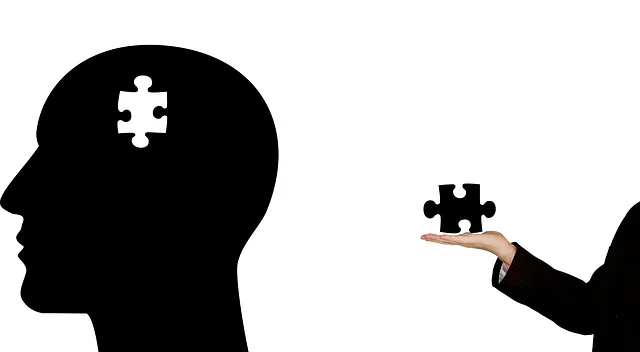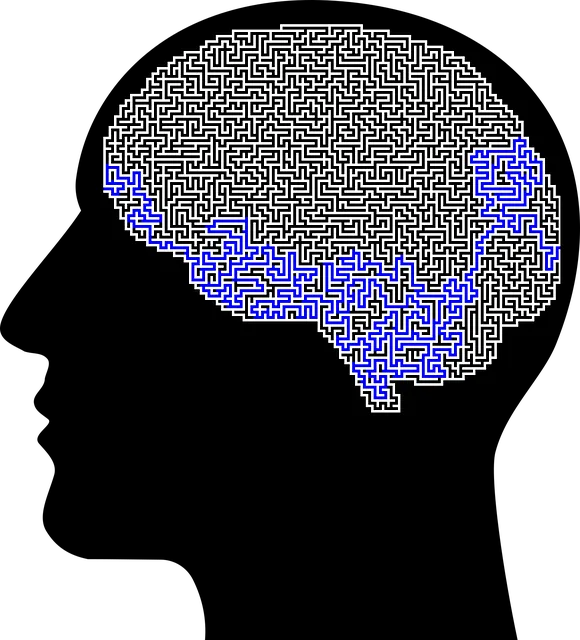Golden Kaiser Permanente's innovative approach to mental health recovery emphasizes the power of social skills training. By addressing social isolation, a common side effect of mental illness, individuals gain confidence to communicate, challenge stigma, and build supportive relationships. This holistic model integrates Compassion Cultivation, Emotional Intelligence, and Community Outreach, empowering clients with tailored strategies for improved social interactions, stress management, and overall well-being. Continuous practice of these skills in daily life ensures sustained progress and reintegration into communities.
Social skills training plays a pivotal role in the holistic recovery of individuals managing mental health conditions. This article explores how Golden Kaiser Permanente mental health providers are at the forefront of implementing effective programs. We’ll delve into the key components making these training initiatives successful, offering practical strategies for navigating and maintaining improved social interactions in daily life. By understanding the importance of social skills, we empower individuals to thrive in their personal and professional spheres.
- Understanding the Importance of Social Skills for Mental Health Recovery
- The Role of Golden Kaiser Permanente Mental Health Providers in Training
- Key Components of Effective Social Skills Training Programs
- Implementing and Maintaining Improved Social Interaction in Daily Life
Understanding the Importance of Social Skills for Mental Health Recovery

In the journey towards mental health recovery, social skills training emerges as a powerful tool often overlooked. Golden Kaiser Permanente mental health providers recognize that effective communication and interpersonal connections are integral to overall well-being. Mental illness can isolate individuals, leading to a decline in self-esteem and exacerbating existing conditions. Therefore, learning and practicing essential social skills is crucial for navigating the complexities of mental health challenges.
This training equips individuals with the confidence to engage in meaningful conversations, foster supportive relationships, and challenge negative thoughts associated with mental illness stigma. By participating in role-playing exercises and group discussions, patients can enhance their ability to express emotions, set boundaries, and navigate social situations with grace. Consequently, improved self-care routine development for better mental health becomes more achievable as individuals gain the skills needed to advocate for themselves and build a robust support network.
The Role of Golden Kaiser Permanente Mental Health Providers in Training

The Golden Kaiser Permanente mental health providers play a pivotal role in empowering individuals with mental health conditions through comprehensive care. Their expertise lies not only in clinical practice but also in fostering a holistic approach to healing, which includes Social Skills Training and Resilience Building based on Mind Over Matter Principles. These providers understand that effective treatment goes beyond medication and therapy; it involves equipping individuals with the tools to navigate social interactions, manage stress, and build resilience in their daily lives.
By integrating these principles into their care model, Golden Kaiser Permanente mental health providers offer a unique and tailored approach to recovery. They recognize that improving social skills can significantly impact an individual’s overall well-being, leading to enhanced relationships, better coping strategies, and improved quality of life. Through personalized guidance and support, these providers enable clients to develop the confidence needed to face challenges head-on, ultimately fostering a sense of empowerment and self-sufficiency.
Key Components of Effective Social Skills Training Programs

Social Skills Training Programs designed to support individuals with mental health conditions should incorporate several key components for optimal effectiveness. First and foremost, Compassion Cultivation Practices are integral to fostering empathy and understanding among participants. These practices encourage active listening, non-judgmental communication, and mindfulness—essential skills for building meaningful connections and navigating social interactions with grace.
Additionally, programs should emphasize Emotional Intelligence, equipping individuals with the ability to recognize, understand, and manage their own emotions as well as those of others. This involves teaching strategies for self-regulation, conflict resolution, and assertive communication, all of which are vital for participating in community activities and maintaining healthy relationships. Community Outreach Program Implementation plays a crucial role in providing real-world context and practical applications for these skills, ultimately enhancing the program’s impact and promoting successful reintegration into social networks like those offered by Golden Kaiser Permanente mental health providers.
Implementing and Maintaining Improved Social Interaction in Daily Life

After completing social skills training, the real challenge lies in translating newfound abilities into everyday interactions. Golden Kaiser Permanente mental health providers emphasize that consistent practice is key to maintaining improved social engagement. Integrating these skills into daily routines helps individuals feel more comfortable and confident interacting with others in various settings, whether at work, school, or social gatherings.
One effective strategy for sustained progress involves continuous emotional intelligence development. Golden Kaiser Permanente’s mental health education programs design activities that encourage self-awareness and empathy, which are crucial components of emotional intelligence. By regularly practicing these skills, individuals can better manage their emotions during social interactions, fostering more meaningful connections with others and reducing the risk of burnout prevention.
Social skills training is a powerful tool for individuals with mental health conditions, as it enables them to navigate social interactions with confidence and ease. The expertise of Golden Kaiser Permanente mental health providers plays a pivotal role in designing and implementing effective programs that foster improved communication and relationship-building. By focusing on key components such as empathy, active listening, and assertiveness, these training programs empower individuals to manage their conditions more effectively and enhance their overall well-being. With consistent practice and support from healthcare professionals, the skills learned can be seamlessly integrated into daily life, leading to more fulfilling social connections and improved mental health outcomes.






